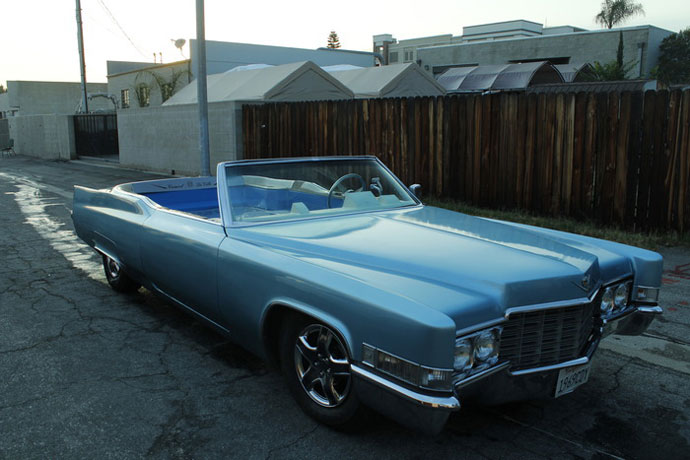Two Engineers Turn A Cadillac DeVille Into What Might Be The World’s Fastest Hot Tub

Image via Kickstarter/ Carpool Deville
The Carpool DeVille might just be the coolest vintage Cadillac you’ll ever see. That’s because it’s been converted into an actual working, moving hot tub dream machine. After 15 years of planning and designing prototypes, two engineers are hoping to take their creation to the Bonneville Salt Flats in Utah next month to set the land speed record for the world’s fastest hot tub.
Buddies and engineering grads from McMaster University, Duncan Forster and Philip Weicker, had a crazy dream once. They wanted to save an abandoned 1982 Chevy Malibu and give it a new life by turning it into a drivable, fully functional hot tub. What began as a joke turned into their life’s mission when they created their first “Carpool” back in 1997. Now they have a new car and a new dream, and they’re on a mission to make it come true.
The Carpool was a local hero,” Forster and Weicker say on the Kickstarter campaign page they’ve set up to help raise funds for their trip to Bonneville. “Parked at parties on and off campus, in the end-zone of the homecoming game, anywhere that good times were being had. The best part was always the looks on people’s faces when they saw how well these two great North American pastimes go together: hot tubs and driving.”
The LA-based engineers acquired the 1969 Cadillac DeVille in 2008 and have done all modifications in-house to create the new Carpool, including a fiberglass tub, molding and dashboard. The car still runs on its original engine which not only powers the Cadillac, but also works as the hot tub’s water heater. Everything is controlled from the driver’s seat, and pool filters are hidden away in the completely converted truck. It truly is a living, breathing, moving Carpool.
The engineers are trying to raise $10,000 by July 11 in order to cover the costs of racing their Carpool at the Bonneville Salt Flats. Weicker and Forster estimate that the costs will include: week-long rentals of tow vehicles, a trailer and RV (about $3,500), fuel for the aforementioned vehicles (another $1,500), car and driver safety gear required by the race officials ($2,000), food and incidentals ($1,000), race fees and club memberships ($1,000), and auxiliary equipment like water tanks, tie downs, and sun shades, (another $1,000).
Any funds raised by the Kickstarter campaign will also help to subsidize the attendance of any current McMaster University engineering undergrad who will to attend the race, as well as reimburse investments made towards the car over the years.









































